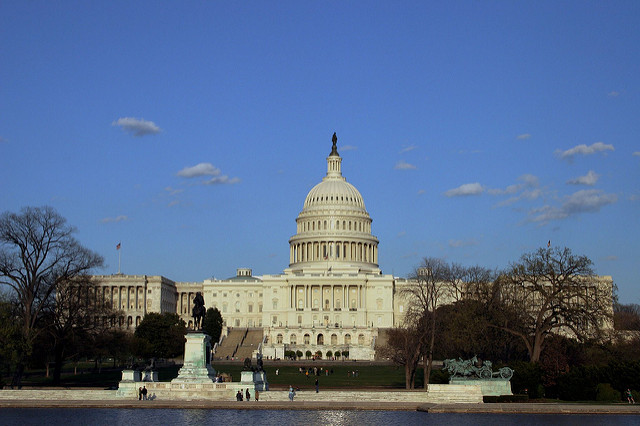
Later this week, the House of Representatives is expected to vote on the “Retirement, Savings, and Other Tax Relief Act, legislation being proposed as a House Amendment to the Senate Amendment to H.R. 88.
This legislation offers relief from several Obamacare taxes, strengthens retirement savings, reforms the IRS, and promotes entrepreneurship.
All Members of Congress should support and vote “YES” on this legislation.
Relief From Obamacare Taxes
H.R. 88 includes key relief from Obamacare taxes. The legislation delays the health insurance tax for an additional two years (through 2022), delays the medical device tax for an additional five years (through 2025), delays the Cadillac tax on employer provided health insurance for one additional year (through 2023), and fully repeals the tanning tax.
These taxes increase the cost of healthcare for families, individuals, and small businesses.
For instance, the health insurance tax will harm more than 141 million consumers, including those in the individual market, large and small group plans, Medicare Advantage and Medicare Part D plans if it takes effect. The tax will increase premiums by 2.2 percent per year and by almost $6,000 over the next decade for a typical family of four with small or large group insurance. In addition, the tax is estimated to directly impact as many as 1.7 million small businesses.
The 2.3 percent medical device tax is similarly harmful to small businesses. Research indicates that the tax reduced medical device investment by $34 billion in 2013 and cost almost 22,000 jobs when it was in effect between 2013 and 2015.
The Obamacare 10 percent tanning tax has wiped out an estimated 10,000 tanning salons, many owned by women. Industry estimates show that 30 million Americans visit an indoor tanning facility in a given year, and over 50 percent of salon owners are women.
Lastly, the Cadillac tax on employer provided health insurance tax will be devastating to employers if it is allowed to go into effect. The Tax could harm up to half of all employers by 2027 if Congress fails to act.
Adopts Key Tax Reform 2.0 Provisions
The tax bill adopts key portions of the Tax Reform 2.0 package passed by the House in September.
Individual retirement accounts are updated so that businesses have more flexibility to fund employee plans and individuals have more flexibility to contribute and save. For instance, the reforms will repeal the prohibition on contributing to an IRA for individuals aged 70 ½ and older.
Retirees with less than $50,000 in their account are exempt from the required distribution rules, while small businesses will see an increase in the employer retirement plan start-up credit.
The legislation also grants start-up businesses important flexibility and tax reduction so they can recover of their initial expenses and bring in new investors to retain access to important tax benefits like the research and development tax credit.
Implements Taxpayer Protections from the IRS
Finally, the legislation includes key reforms from the Taxpayer First Act that was passed earlier this year based around creating a modern IRS that has improved service, independent appeals process, and protects taxpayer data.
For instance, the legislation increases the protection over confidential taxpayer data by prohibiting the IRS from outsourcing taxpayer information to outside contractors unless necessary for expert evaluation of the information at hand.
The designated summons process is reformed by requiring the IRS to disclose a documented history of reasonable requests of information from the taxpayer to the head of the relevant operating division and its division counsel.
Adjustments are made governing the contact of third parties so that the IRS has to give taxpayers a 45-day notice before contacting a third party to collect taxpayer liabilities.
While more remains to be done, these reforms move in the right direction toward ensuring taxpayers are protected from IRS overreach.
One of the most egregious examples of IRS abuse in recent memory is when the agency broke federal law to hire a Democrat white-shoe law firm to audit Microsoft. Quinn Emmanuel’s services, which cost taxpayers $1,000 an hour, could have easily been performed by the IRS’s 40,000 in-house enforcement officers. The IRS’s decision to hire an outside law firm to audit Microsoft calls the agency’s judgment into question as well as its use of limited resources.

